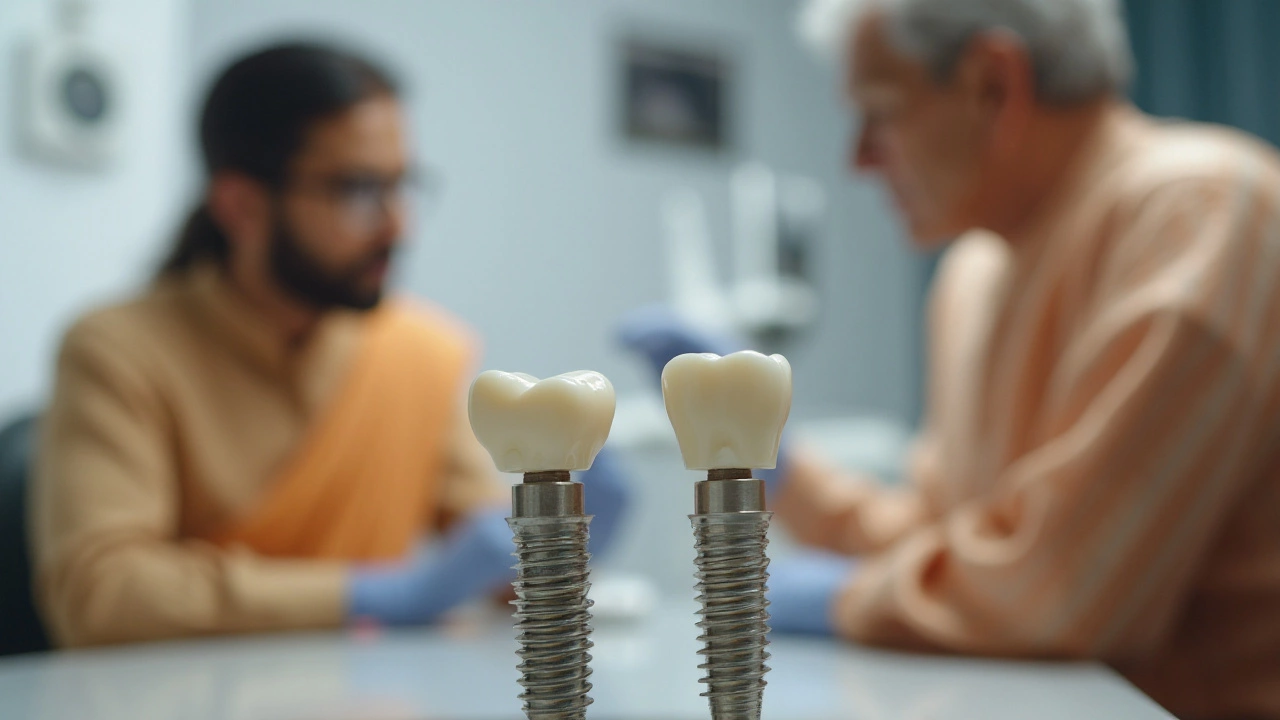Dental implants have become a popular and reliable option for tooth replacement, but many wonder how long they actually last. This article explores the durability of dental implants, factors affecting their lifespan, and provides tips for maintaining them. We also compare them to other tooth replacement options and discuss current innovations in dental technology. Understanding these aspects can help individuals make informed decisions about their oral health.
Read MoreDental Implants: A Simple Guide to Getting Your Smile Back
Thinking about filling a missing tooth? Dental implants are a popular way to bring back function and looks without the hassle of bridges or removable dentures. This guide breaks down the basics, costs, and care steps so you can feel confident before you book an appointment.
What Exactly Is a Dental Implant?
A dental implant is a small titanium post that surgeons place into the jawbone where a tooth used to be. The post acts like a natural tooth root, fusing with bone over a few months. Once stable, a crown (the visible tooth) is attached on top. Because it’s anchored in bone, the implant feels sturdy and doesn’t slip like a denture.
Who Is a Good Candidate?
Most adults with a healthy jawbone can get implants. You need enough bone to hold the post; if you’ve lost a lot of bone, a graft might be required first. Good oral hygiene, non‑smoking status, and overall health also improve success rates. If you have uncontrolled diabetes or recent radiation to the face, discuss risks with your dentist.
The typical process has three main stages: assessment, placement, and restoration. First, the dentist does X‑rays or a 3‑D scan to map the bone and plan the surgery. Then, under local anesthesia, the post is drilled into the jaw. After that, you wait 2‑4 months while the bone bonds with the titanium – this is called osseointegration. Finally, an abutment is placed on the post and the custom crown is cemented or screwed on.
Cost varies a lot. In India, a single implant can range from ₹15,000 to ₹50,000 depending on the brand, the need for bone grafts, and the dentist’s expertise. Insurance usually doesn’t cover implants, so ask about payment plans or package deals. Remember that a higher price often means better material quality and more experienced hands, which can lower long‑term issues.
Recovery is usually quick. Most people return to work the day after surgery, but you should eat soft foods for a week and avoid chewing directly on the implant site. Ice packs, prescribed pain meds, and gentle mouth rinses help control swelling and keep the area clean. Follow the dentist’s instructions on brushing around the implant – a soft brush and careful flossing are key.
There are a few myths worth clearing up. Implants don’t cause bone loss; they actually preserve bone by stimulating it. They’re not only for the young – many seniors enjoy implants because they avoid the inconvenience of removable dentures. And no, implants aren’t permanent only if you neglect oral hygiene; proper care can keep them healthy for decades.
Choosing the right dentist matters. Look for a specialist who is a certified oral surgeon or periodontist with lots of implant cases. Ask to see before‑and‑after photos of patients similar to you. Read reviews, verify their credentials, and don’t be shy about asking about success rates and how they handle complications.
In short, dental implants offer a long‑lasting, natural‑looking solution for missing teeth. By understanding the steps, costs, and care tips, you can decide if they fit your budget and lifestyle. Ready to chat with a professional? The first consultation is usually free and can give you a personalized plan.





